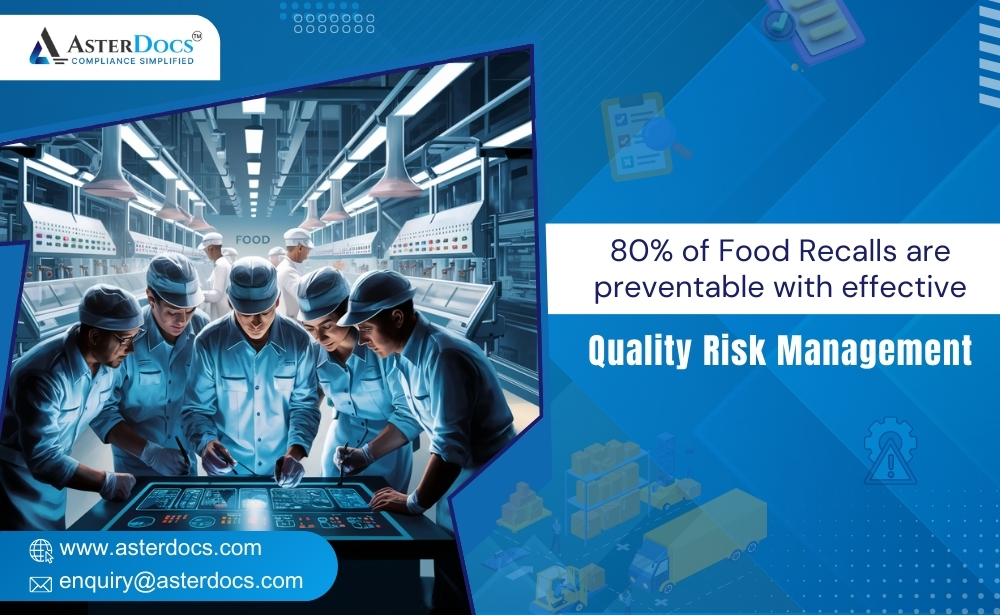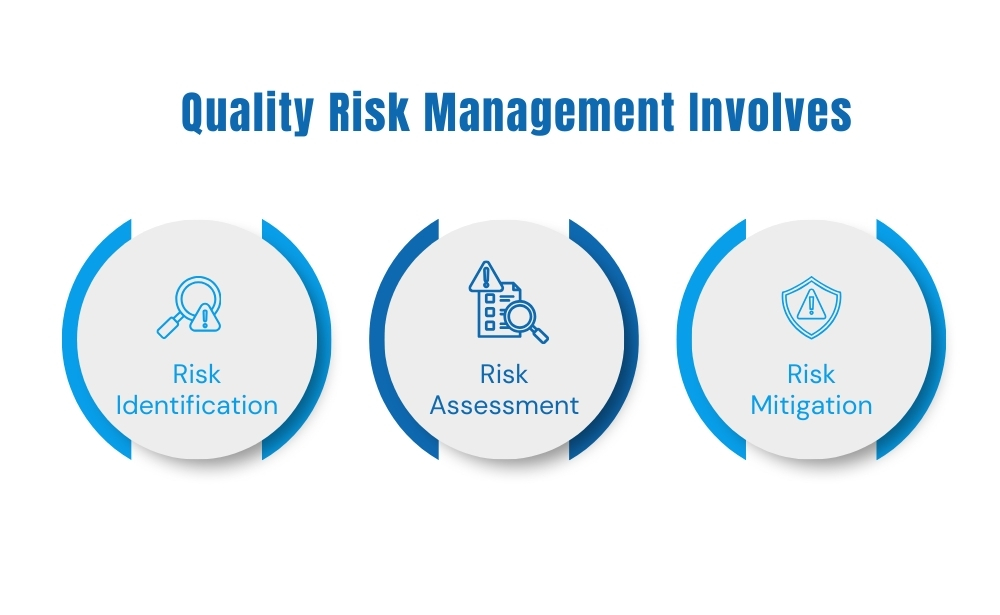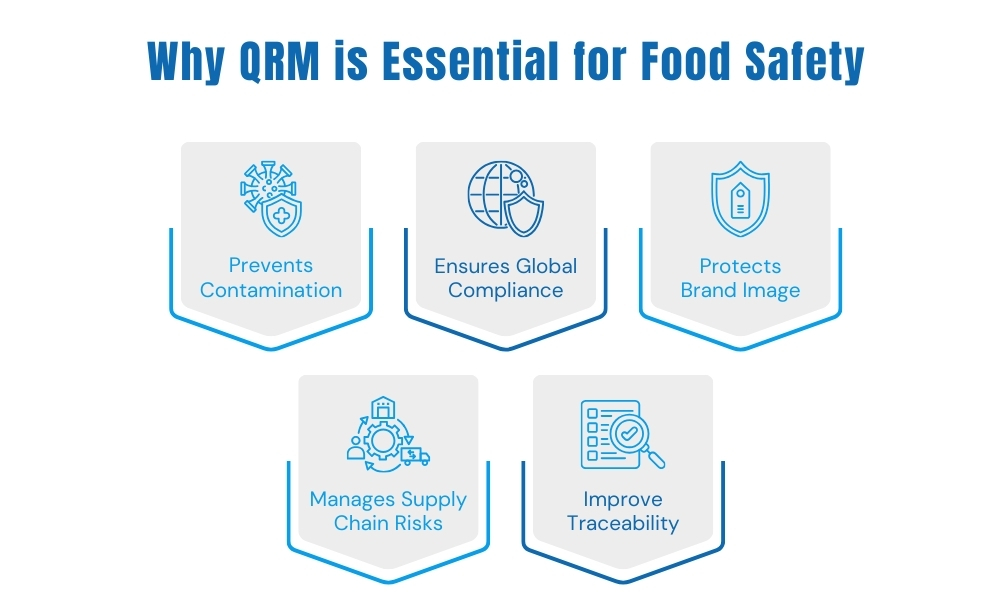Imagine a batch of dietary supplements reaching the market, only to be recalled within weeks due to contamination. The backlash is swift as consumers lose trust, regulatory bodies step in, and the brand’s reputation takes a severe hit. This scenario is every food manufacturer’s nightmare, yet it’s an all-too-common reality in today’s complex global supply chain.
The problem? Lack of a robust risk management system in place. Even the smallest oversight can snowball into a full-blown crisis. This is why quality risk management is not just a best practice; it’s a critical necessity for ensuring food safety in the global supply chain. To gain further insight, let’s dive deep into the blog.
The Growing Complexity of the Global Food Supply Chain
Globalization has transformed the food industry, allowing businesses to source ingredients from various parts of the world. However, this also means that the supply chain has become increasingly complex, with more opportunities for things to go wrong. Factors such as varying regulations, different quality standards, and diverse environmental conditions all contribute to potential risks.
If a supplier in one country fails to meet food safety standards, contamination can occur, which may go undetected until the product reaches the consumer in another part of the world. The consequences can be severe, including product recalls, financial losses, and, most importantly, harm to consumers’ health.
What is Quality Risk Management?
Quality risk management (QRM) is a systematic approach to identifying, assessing, and mitigating risks that can affect the quality and safety of food products. It involves:
- Risk identification: Identifying potential hazards that may jeopardize food safety, such as contamination, improper handling, or supply chain disruptions.
- Risk Assessment: Evaluating the likelihood and severity of these risks to help businesses prioritize their mitigation efforts.
- Risk Mitigation: Implementing strategies to minimize or eliminate identified risks, such as stringent quality checks, supplier audits, and compliance with international standards.
Why is Quality Risk Management Crucial for Food Safety?
It is not just a regulatory requirement; it’s a fundamental practice that protects consumers and safeguards your brand. Here’s why it’s essential:
Preventing Contamination and Foodborne Illnesses
- Contamination can occur at any stage of the supply chain, from raw material sourcing to final packaging. QRM helps identify potential contamination sources and implements measures to prevent them.
- By conducting regular risk assessments, companies can detect and address issues before they escalate into serious problems.
Ensuring Compliance with Global Standards
- Different countries have varying regulations and standards for food safety. QRM ensures that your products comply with these regulations, reducing the risk of non-compliance.
- Compliance isn’t just about avoiding fines; it’s about maintaining consumer trust and ensuring that your products are safe for consumption.
Protecting Brand Reputation
- A single food safety incident can damage a brand’s reputation beyond repair. QRM helps maintain consistent product quality, ensuring that your brand is associated with safety and reliability.
- Being proactive about quality risk management can set your business apart as a trusted leader in the industry.
Managing Supply Chain Disruptions
- Global supply chains are vulnerable to disruptions, whether due to natural disasters, political instability, or supplier failures. QRM helps companies prepare for these disruptions and ensures continuity in food safety practices.
- By having contingency plans in place, businesses can minimize the impact of supply chain disruptions on product quality and safety.
Enhancing Traceability
- In the event of a food safety issue, being able to trace the problem back to its source is crucial. QRM enhances traceability by keeping detailed records of every step in the supply chain.
- This not only helps in quickly addressing the issue but also in implementing corrective actions to prevent future occurrences.
Conclusion
Quality risk management is not just a checkbox in the food manufacturing industry; it’s a critical safeguard that protects consumers, ensures regulatory compliance, and upholds the integrity of your brand. By prioritizing quality risk management, you not only protect your business from costly recalls and damage to your reputation but also contribute to a safer, more reliable global food supply chain.
As the industry evolves, those who invest in strong risk management practices will be better prepared to face the challenges and emerge as food safety leaders. To support this effort, AsterDocs offers a specialized software solution tailored for nutraceutical and dietary supplement businesses. AsterDocs provides essential tools to manage compliance, enhance traceability, and mitigate risks across your supply chain. By streamlining your quality risk management processes with AsterDocs, you can ensure your products consistently meet the highest standards of safety and quality.
Ready to safeguard your supply chain? Learn more about AsterDocs and take the first step towards a safer, more compliant future.















